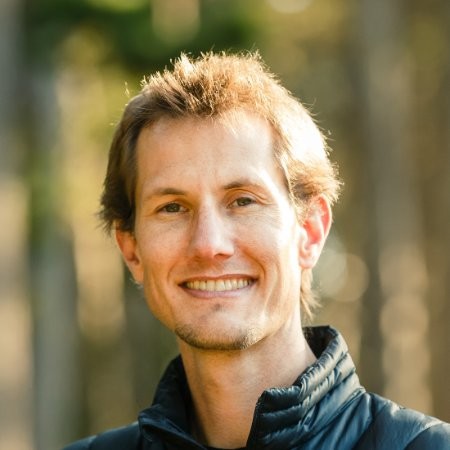
This is the fourth in a weekly series of excerpts from the upcoming book "The B Corp Handbook: How to Use Business as a Force for Good" (Berrett-Koehler, October 13, 2014).
By Ryan Honeyman
More than 1,000 Certified B Corporations from 80 industries and 35 countries — led by well-known icons like Patagonia and Ben & Jerry’s and disruptive upstarts like Warby Parker and Etsy — are leading a global movement to redefine success in business.
One of the most powerful ways to learn about the movement is to hear about the benefits, challenges, and surprises of becoming a Certified B Corporation directly from the B Corp community.
I recently interviewed Mandy Cabot, CEO of Dansko, for my upcoming book "The B Corp Handbook." Dansko is a great example of how using business as a force for good has benefitted their customers, employees, local community, the environment and the company’s bottom line.
Q: What business benefits do you directly attribute to your B Corp certification?
"B Corps love to share. Whether it’s great ideas about marketing, operations, community outreach, or sourcing, or offering discounts to fellow B Corps on goods and services, the community of B Corps generates a tremendous amount of collective goodwill, energy and value."
"B Corp certification has also helped us stay focused on best practices — less operational waste, lower energy usage, a better and more complete employee handbook and sourcing code of ethics, and so on."
"If you really want to tow the triple bottom line, you need to hire an entire team of people to stay on top of everything. The folks at B Lab who give this their undivided attention and who can see the 'all of it' do this for us, coming up with both the standards and easy-to- follow steps for improvement."
In addition, there’s definitely a halo effect that comes with being a B Corp. We get extra media attention, both through collective marketing efforts (often provided at very little cost by B Corps like Ogden Publications), as well as editorial press.
Q: Was it difficult to “sell” B Corp certification internally?
"Selling the B Corp proposition to our internal folks was not difficult. We already had a culture that valued social benefit, employee empowerment and development, community outreach and environmental stewardship. B Corp certification gave us the tools, the language, the standards and the collective voice to stay on mission."
Q: What was your biggest challenge in becoming a B Corp?
"Becoming a B Corp was more difficult than we thought it would be. When we first applied we were four percent employee-owned. We had (what we thought were) very generous employee benefits, extensive volunteer and corporate giving programs, gold LEED certified headquarters, products certified by the American Podiatric Medical Association, and so on. Yet we received only the barest passing grade from B Lab."
"However, this experience has been incredibly valuable for us. The certification process identified gaps in our employee handbook, for example, that we readily adopted but simply hadn’t thought of ourselves -- like a whistle-blower policy or policies allowing time off for voting and jury duty."
Q: What advice do you have for a business that is considering B Corp certification?
"My advice is to start by taking the free and confidential B Impact Assessment, even if you’re unsure about getting certified. It will likely show you things you hadn’t thought of and allow you to compare your results to those of thousands of other companies."
"Also, involve as many people as you can in the process. If you want your values to stay top-of-mind in all your operations, involve every department in the responses. Engage non-managers as well. Give them an opportunity to lead and to offer solutions; turn them into champions and heroes."
For more information on Certified B Corporations, visit bcorporation.net.
Ryan Honeyman is a sustainability consultant, executive coach, keynote speaker, and author of The B Corp Handbook: How to Use Business as a Force for Good. Ryan helps businesses save money, improve employee satisfaction, and increase brand value by helping them maximize the value of their sustainability efforts, including helping companies certify and thrive as B Corps. His clients include Ben & Jerry’s, Klean Kanteen, Nutiva, McEvoy Ranch, Opticos Design, CleanWell, Exygy, and the Filene Research Institute.
To get exclusive updates and free resources sent to your inbox every month, sign up for Ryan's monthly newsletter. You can also visit honeymanconsulting.com or follow Ryan on Twitter: @honeymanconsult.

Ryan Honeyman is a sustainability consultant, executive coach, keynote speaker, and author of "The B Corp Handbook: How to Use Business as a Force for Good" (Berrett-Koehler Publishers, October 2014), the world’s first book on B Corporations.
Ryan helps businesses save money, improve employee satisfaction, and increase brand value by helping them maximize the value of their sustainability efforts, including helping companies certify and thrive as a B Corp. His clients include Ben & Jerry’s, Klean Kanteen, Nutiva, CleanWell, Exygy, and the Filene Research Institute.
Honeyman Sustainability Consulting, a Certified B Corporation, was recently honored—alongside Patagonia, Seventh Generation, New Belgium Brewery, GoLite, and Method—on the 2014 B Corp “Best for the Environment List,” which recognizes businesses that have scored in the top 10% of all B Corps worldwide for positive environmental impact.
Ryan has written articles for Utne Reader, TriplePundit, Sustainable Industries, and the Credit Union Times. He has also been a featured speaker at the Wharton School of Business at the University of Pennsylvania, the Hass School of Business at the University of California, Berkeley, San Francisco State University, Mills College, the California College of the Arts, the Sustainable Enterprise Conference, the Marin Renaissance Entrepreneurship Center, the New Sector Alliance, Nextspace, the Impact Hub Oakland, and the Impact Hub SoMa in San Francisco.
Ryan holds a B.A. from the University of California, Santa Cruz and a M.Sc. from the London School of Economics and Political Science.














